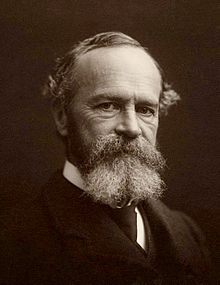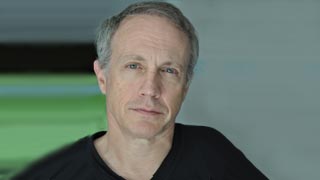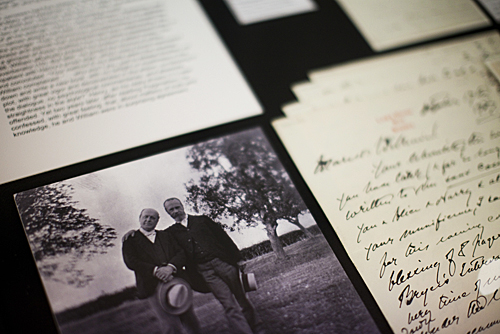





Overview | Seminars | Keynotes | cfp | Schedule | Readings | Registration
Featuring: Richard Shusterman, William James & Feminism & More, Philosophy & Music (including experimental music group Lucky Dragons), & Indigenous Philosophy, &, &, &c.
The Summer Institute in American Philosophy is designed for faculty members and advanced graduate and postdoctoral students in philosophy and related disciplines interested in research and study in the American philosophical tradition. The program is centered around three discussion-intensive plenary seminars concerning central problems, figures, and themes in the tradition. Each seminar is led by a panel of distinguished experts and consists of multiple sessions on subsequent days. A pair of keynote addresses by Richard Shusterman will enrich our discussions on the relationship between aesthetics, pragmatism, and somaesthetics. There will also be a broad number of traditional conference-style sessions which will include paper presentations and works-in-progress meetings.
The program includes time away from sessions to visit the Oregon coast, hike in the nearby Cascade mountains, or to enjoy Willamette Valley wine tasting. Participants typically gather each night at nearby restaurants and pubs to continue the day's discussions. Housing is available at local inns as well as (at a very affordable rate) on one of the UO residence halls.
The 2013 SIAP Conference Schedule is now finalized and available online.

Richard Shusterman is the author of a number of books on philosophical aesthetics and philosophical pragmatism, and is the key thinker associated with contemporary work in philosophical somaesthetics. He has written on a range of figures stretching from Dewey and Rorty to Bourdieu, Foucault, Wittgenstein, and T.S. Eliot. His recent work develops a series of crucial philosophical proposals brought into focus by the term 'somaesthetics'. The central theme uniting these proposals concerns the importance of the role of embodiment, aesthetics, and especially embodied aesethetics, across philosophical topics. Too much neglected in the history of philosophy, embodied aesthetics provides a perspective that recenters the work of ethics, political thought, epistemology, and of course the philosophy of art on a range of inquiries in need of further philosophial elaboration.
Professor Shusterman will deliver a two-part talk, the first lecture being on the evening of Monday July 8th, and the second being late morning on Thursday July 11th.
For a selection of some of Professor Shusterman's publications relevant to the talks, please see the reading lists page, where you will also find information on a discount for ordering his two latest titles.
Stream One: (Re)reading James through a Feminist Lens
William James was in many respects ahead of his time, emphasizing attention to the situated and bodily character of knowledge and value before the advent of feminist standpoint theory, as well as the concrete consequences of philosophizing in a way that pre-figures recent  feminist efforts to reform academic philosophy. Although James's status as a feminist is doubtful, his work appears ripe with resources for contemporary feminist epistemology, ethics, phenomenology and philosophy of psychology. Yet, these resources go largely untapped by James himself. The goal of this seminar is to establish that James's pragmatism can and should be fruitfully engaged by feminist philosophy. Panelists argue both for the positive value of certain of James' theoretical resources for feminism, and offer critical readings of problematically gendered assumptions and language in James' philosophical work. Collectively, then, this seminar offers a nuanced feminist re-reading of James, drawing out moments of alliance as well as tension. This plenary session will be facilitated by Erin C. Tarver (Oxford College of Emory University), Erin McKenna (Pacific Lutheran University, and current president-elect of SAAP), and Susan Dieleman (Dalhousie University).
feminist efforts to reform academic philosophy. Although James's status as a feminist is doubtful, his work appears ripe with resources for contemporary feminist epistemology, ethics, phenomenology and philosophy of psychology. Yet, these resources go largely untapped by James himself. The goal of this seminar is to establish that James's pragmatism can and should be fruitfully engaged by feminist philosophy. Panelists argue both for the positive value of certain of James' theoretical resources for feminism, and offer critical readings of problematically gendered assumptions and language in James' philosophical work. Collectively, then, this seminar offers a nuanced feminist re-reading of James, drawing out moments of alliance as well as tension. This plenary session will be facilitated by Erin C. Tarver (Oxford College of Emory University), Erin McKenna (Pacific Lutheran University, and current president-elect of SAAP), and Susan Dieleman (Dalhousie University).
Stream Two: (Re)reading James on Energy
A key word for James and his cultural milieu, 'energy' is a term whose resonances are easily confusing for, if not often lost on, contemporary readers. But energy was a central idea for James's pragmatism as well as a dynamic operator in its development and extension -- the concept also played a crucial role in the development of other philosophical and cultural moments contemporary with James. This seminar will place James' concept of energy and its resonant terms in proper historical context so that we can better place James in our own context today. This plenary session will feature Linda Simon (Emerita, Skidmore College) and Loren Goldman (UC Berkeley, Rhetoric; Ohio University in the Fall).
Please see the advanced reading list for these sessions.
 Indigenous American philosophy has long been part of the philosophical landscape of North America. From their early influences on the developing European American tradition to their resistance to industrial capitalism and genocide, Indigenous philosophers have interacted with the dominant culture and offered alternative visions of the land, politics, ontology, and epistemology.
Indigenous American philosophy has long been part of the philosophical landscape of North America. From their early influences on the developing European American tradition to their resistance to industrial capitalism and genocide, Indigenous philosophers have interacted with the dominant culture and offered alternative visions of the land, politics, ontology, and epistemology.
Recent work by American Indian philosophers has provided new formulations of problems and key ideas at the intersections of American Indian philosophy, pragmatism, and analytic philosophy. This seminar will consider current developments in American Indian philosophy especially as they interpret conceptions of person, place, and sovereignty. Thomas M. Norton-Smith (Shawnee), author of The Dance of Person and Place: One Interpretation of American Indian Philosophy, attempts to bridge American Indian and Western philosophy through an engagement with the philosophy of Nelson Goodman. Lee Thurman Hester (Choctaw), author of Political Principles and American Indian Sovereignty, offers a philosophical examination of the problems faced by  indigenous people and their nations and argues for a response grounded in an American Indian conception of sovereignty.
indigenous people and their nations and argues for a response grounded in an American Indian conception of sovereignty.
The plenary session will be led by Thomas M. Norton-Smith, (Kent State Stark, Philosophy), and Thurman Lee Hester, Jr., (The University of Science and Arts of Oklahoma, American Indian Studies).
Please see the advanced reading list for these sessions.
 Why Crossing Disciplines? Because at its inception, pragmatism was already a cross-disciplinary, perhaps even counter-disciplinary or post-disciplinary, way of thinking. We now find ourselves in an era where intellectual production and innovation is definitively cemented in disciplinarization and its attendant rituals of professionalization (see the advance warning in William James's disturbingly prophetic "Ph.D. Octopus" essay). Some aspects of these changes are beneficial, but many are not, and in any event it is clear that we have yet to work through these transitions with sufficient attention to where we find ourselves. Toward jolting some of our usual habits of thinking, the SIAP Crossing Disciplines panels are geared toward understanding the work of pragmatism and the work of philosophy differently. This session will continue last July's Crossing Disciplines discussions between philosophy and political science (which functioned as a kind of precusor to a larger event at Johns Hopkins University in October). These cross-disciplinary efforts are now a regular feature at each SIAP meeting, with the aim of thereby putting pragmatism into richer contact beyond the work of philosophy itself.
Why Crossing Disciplines? Because at its inception, pragmatism was already a cross-disciplinary, perhaps even counter-disciplinary or post-disciplinary, way of thinking. We now find ourselves in an era where intellectual production and innovation is definitively cemented in disciplinarization and its attendant rituals of professionalization (see the advance warning in William James's disturbingly prophetic "Ph.D. Octopus" essay). Some aspects of these changes are beneficial, but many are not, and in any event it is clear that we have yet to work through these transitions with sufficient attention to where we find ourselves. Toward jolting some of our usual habits of thinking, the SIAP Crossing Disciplines panels are geared toward understanding the work of pragmatism and the work of philosophy differently. This session will continue last July's Crossing Disciplines discussions between philosophy and political science (which functioned as a kind of precusor to a larger event at Johns Hopkins University in October). These cross-disciplinary efforts are now a regular feature at each SIAP meeting, with the aim of thereby putting pragmatism into richer contact beyond the work of philosophy itself.
REGISTRATION. To register for attendance please fill out the Institute registration form. On-campus housing options are also available as per information on the registration form.
TRAVEL INFORMATION. Travel information is available on the registration form. Additional information is available via the University of Oregon website.
GRADUATE TRAVEL FUNDING. We have a limited number of travel grants available to graduates at the conference. Priority will be given to graduates who are presenting their work for the first time at an SIAP conference, although all attendees who request funding assistance will be considered. These grants cover the entire cost of housing and registration (or the equivalent). If you would like to be considered for a grant, please indicate so on your submission. Graduate Travel Grant Application Deadline: April 15, 2013. These grants are generously funded by the Society for the Advancement of American Philosophy.
FURTHER INFORMATION. For more information about Eugene and Lane County, Oregon, see Travel Lane County. The Oregon Bach Festival typically runs from late June through early July. The world-famous hippie-fest The Oregon Country Fair is typically held in early July.
For more information about the conference please contact one of the Summer Institute co-organizers: Colin Koopman (University of Oregon), Scott Pratt (University of Oregon), Susan Dieleman (Dalhousie University), or Jessica Soester (SIU, Carbondale).
The Summer Institute in American Philosophy is made possible by generous sponsorship from the Society for the Advancement of American Philosophy, the Department of Philosophy at the University of Oregon, the Senior Vice Provost of the University of Oregon, the Oregon Humanities Center, the Department of Art at the University of Oregon, and the generosity of all of our plenary presenters.

We invite submissions to present papers in any area of American Philosophy at SIAP. Presentations may either be Traditional Conference papers or one of a variety of In-Progress presentations.
Submission Instructions: Please specify in your submission the type of presentation from the list below, according to instructions. Email your submissions to Colin Koopman at koopman at uoregon point edu. The subject line of your email should read: "SIAP 2013 Submission: [format type (e.g., Traditional Paper, Dissertation-In-Progress)]. Please include the complete text of your submission in the body of your email and do not include anything as an attachment. The submission deadline is Monday April 15, 2013 with decisions to be made no later than Friday May 3, 2013. If you absolutely need an earlier decision for the sake of securing institutional funding, please contact Colin Koopman beforehand, and we will see what we can do.
* Traditional Papers: Papers in all areas of American philosophy are welcome, but we will particularly favor papers whose topics are related to the themes of the plenary seminars and the work of our keynote speaker. Instructions: Please submit an abstract of 500 words describing the paper in detail. Final papers should be of a length suitable for a brief presentation of about 20 minutes.
* Books-In-Progress: Those working on book manuscripts in some area of research pertinent to American philosophy are invited to discuss their idea with seminar participants. This includes fresh ideas for books just underway as well as books nearing completion, but does not extend to author-critics sessions on recently-published books. Instructions: Please submit a 500 word abstract describing your book manuscript, the content of your presentation, your ideas for the format of the presentation.
* Dissertations-In-Progress: Graduate students preparing dissertation proposals, in the dissertation-writing phase, or approaching their dissertation defense are invited to present their work at special dissertations-in-progress sessions. This is a regular tradition at SIAP and one of the most exciting venues to showcase new work that is being developed in American Philosophy at various graduate programs across the country and internationally. Instructions: Please submit a 500-word abstract describing the content of your dissertation. We will work with you in advance of the session on general guidelines for preparing the presentation and what to expect. In addition please note: we have a limited number of travel grants available to graduates at the conference who will be presenting, so please indicate if you would like to be considered for a travel grant which will cover the entire cost of housing as well as registration fees (leaving the remaining costs of travel to your home institution or other support). These grants are generously funded by the Society for the Advancement of American Philosophy. (See below for more information on the grants).
* Experiments-In-Progress: We invite presentations on projects, collaborations, group work, public philosophy forays, field philosophy work, and other philosophical experiments for the purposes of discussion at SIAP. Some examples: Michael Eldridge's 2009 group discussion of Obama's Pragmatism (and see the most recent issue of Contemporary Pragmatism for some papers on the topic, some of which were initially formulated at this session), Donald Hood and Eric Weber's 2011 presentation on pragmatism as public philosophy, a presentation on in-progress interdisciplinary research collaboration including reflections on what is going right in the project and what unexpected blockages have come up, a roundtable presentation concerning the development of open access scholarship in American philosophy, discussions oriented toward the design of advanced or introductory courses in pragmatism using online resources and collaborative assignment. These sessions will be limited in number and are intended to provide opportunities for innovative forms of work, thought, and scholarship in the American tradition. Instructions: Please submit a 500-word abstract describing your project, the content of your presentation, your ideas for the format of the presentation, a justification of the project terms of larger issues of outreach and scholarship, and any a/v needs you might have.